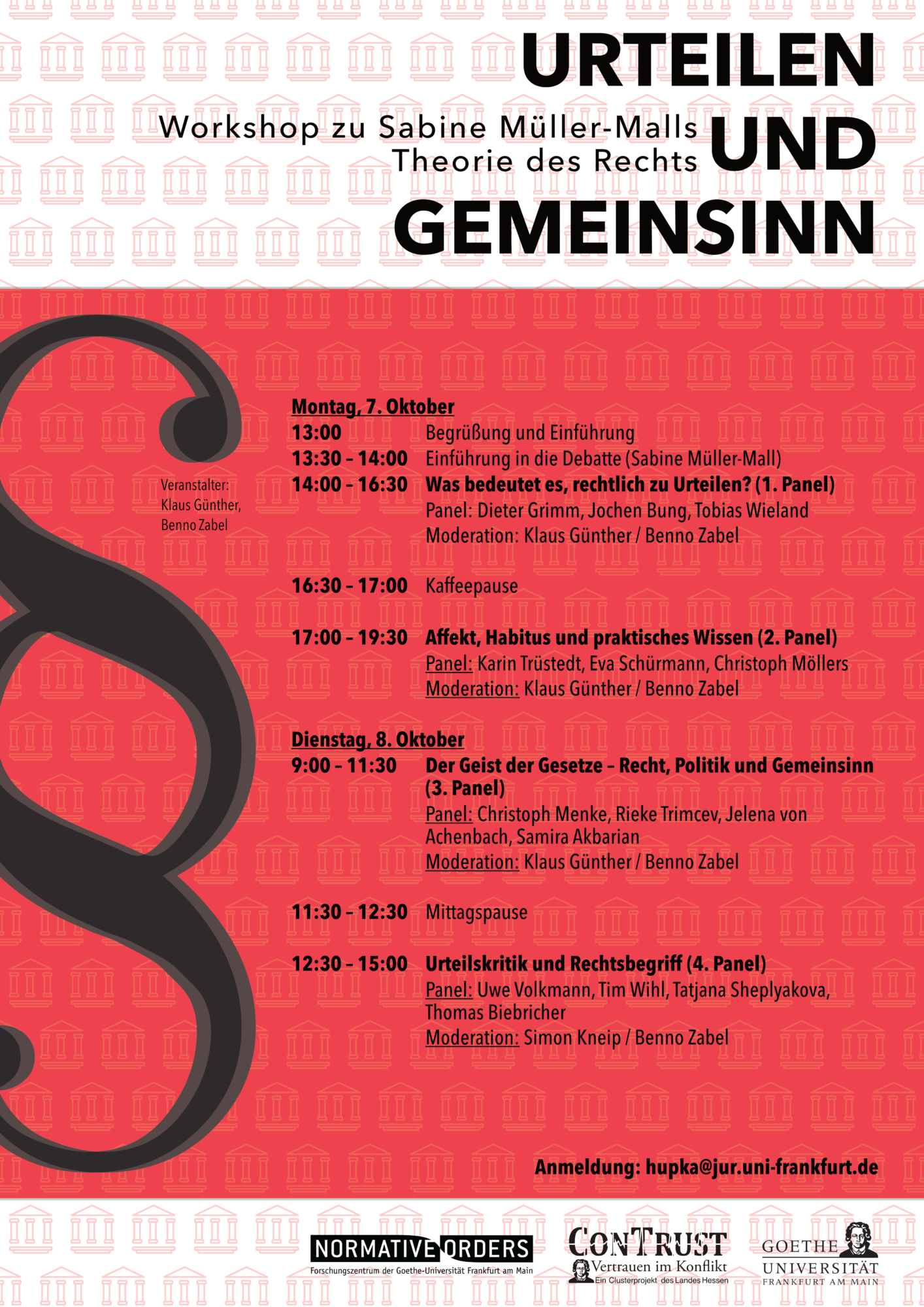Judgment and public spirit
Workshop (in German)
on Sabine Müller-Mall’s theory of law
Program
Monday, October 7, 1 p.m.
Welcome and introduction
Prof. Dr. Klaus Günther and Prof. Dr. Benno Zabel
13.30
Introduction to the debate
Prof. Dr. Sabine Müller-Mall
2.00 p.m.
What does it mean to make legal judgments? (1st panel)
Topic: What is a judgment? What is the relationship between subjective and objective judgment, determining and reflective judgment? On the importance of reasoning, justification and the consequences of rules in legal systems that are as plural as they are fragile.
Panel: Prof. Dr. Dieter Grimm, Prof. Dr. Jochen Bung and Dr. Tobias Wieland. Moderation: Prof. Dr. Klaus Günther and Prof. Dr. Benno Zabel
16.30
Coffee break
17.00 hrs
Affect, habitus and practical knowledge (2nd panel)
Topic: What does “aligning the judgment with a pass” mean? What significance do affect, emotion and habitus have for judgment? Can the relationship between experience, “quasi-sensuality” and individual justice be defined in more detail?
Panel: PD Dr. Katrin Trüstedt, Prof. Dr. Eva Schürmann and Prof. Dr. Christoph Möllers. Moderation: Prof. Dr. Klaus Günther and Prof. Dr. Benno Zabel
Tuesday, October 8
9.00 a.m.
The spirit of the law – law, politics and public spirit (3rd panel)
Topic: The law wants to be formal and legal judgment apolitical, but isn’t recourse to the spirit of the law already political? Is the formal and apolitical gesture of legal judgment an intrinsic value of normative orders? What is the relationship between legal hermeneutics, legal judgment and public spirit/sensus communis? What technique of politicization is involved with regard to the legitimacy and critique of judgement? And is legal judgment emancipatory?
Panel: Prof. Dr. Christoph Menke, PD Dr. Rieke Trimcev, Prof. Dr. Jelena von Achenbach and Dr. Samira Akbarian. Moderation: Prof. Dr. Klaus Günther and Prof. Dr. Benno Zabel
11.30 a.m.
Lunch
12.30 p.m.
Criticism of judgment and the concept of law (4th panel)
Topic: To what extent do legal judgment and the critique of judgment say something about the concept of law, about the handling of the resources of freedom and the crises of bourgeois societies? Does the concept of judgment presented here reflect the possibilities of judgment in and through the law? Can the legal judgment be based solely on the conflict/the case or must it be thought of in terms of lifeworld practice/subjective rights?
Panel: Prof. Dr. Uwe Volkmann, Dr. Tim Wihl, Dr. Tatjana Sheplyakova and Prof. Dr. Thomas Biebricher. Moderation: Simon Kneip and Prof. Dr. Benno Zabel



